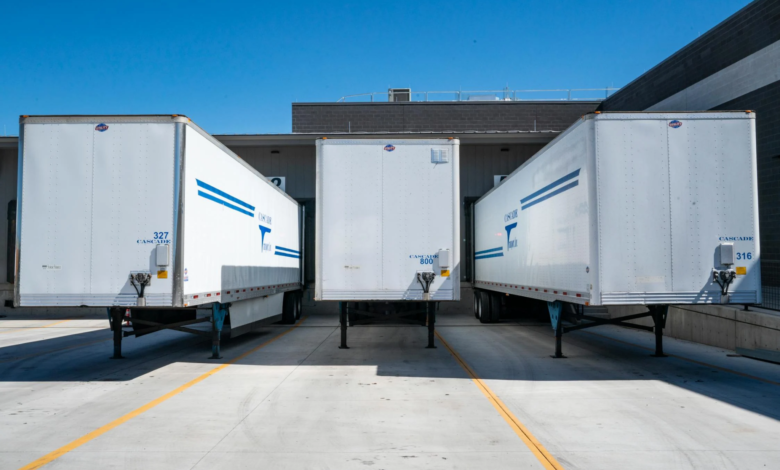FAQs When Buying or Renting Trailers

Scuring the appropriate trailer is a vital undertaking for logistics experts who aim to sustain fluid and effective processes. Whether you’re broadening your fleet or dealing with a fleeting need, the verdict to purchase or lease a trailer can substantially influence your organisation’s performance and profit margins. But, how do you verify that the trailer fits your operational prerequisites?
Why does trailer selection matter?
Efficient, safe, and timely transport of goods is the crux of logistics. The type of trailer utilised is instrumental in fulfilling this goal. An ill-suited or substandard trailer can trigger delays, escalate fuel usage, or even harm your freight. Opting for the right trailer guarantees that your vehicles meet capacity and performance standards, while safeguarding your investment in your fleet and cargo.
No two businesses have identical requirements, so there is no universally applicable solution. Therefore, prior to finalising your selection, it’s critical to consider an array of factors.
See also: How AI is Revolutionizing Presentation Creation: A Game-Changer for Professionals
Should I acquire or lease a trailer?
The answer hinges on your operational necessities, financial plan, and long-term objectives. If you consistently need a certain type of trailer and predict regular usage, possession might be preferable. Ownership provides enduring worth and investment, particularly if your organisation necessitates alterations or branding on the trailer.
Contrarily, if you value adaptability, opting to rent is the perfect solution. Temporary usage, peak seasons, or test running a particular trailer model are all valid reasons to consider leasing. Rentals also exempt you from maintenance and repair responsibilities, simplifying the process of having a trailer.
What should factor into my trailer choice?
The selection process extends beyond just availability; it’s about choosing a trailer that suits your cargo, routes, and vehicles. Start with capacity and size. Is your cargo predominantly heavy machinery needing a flatbed, or temperature-sensitive goods requiring a refrigerated trailer? Aligning the size with your freight needs enhances efficiency.
Load limits are equally important. Overloading a trailer can lead to tire wear, impaired fuel efficiency, potential fines or safety hazards. Knowledge of gross vehicle weight ratings (GVWR) is essential for an informed decision.
Finally, ensure compatibility. Not all trailers can connect with each type of vehicle. Double-check coupling types, hitch configurations, and whether your current vehicles can manage the trailer’s dimensions and weight. Speak to experts such as FWR Australia to make informed decisions.
What about trailer maintenance?
Maintenance can significantly affect operational uptime and cost-effectiveness. If you opt to buy, inspect the trailer’s condition to spot any wear and tear on tires, suspension, or braking mechanisms. Regular maintenance schedules should be factored into the ownership plan to prevent malfunctioning.
If leasing, opt for rental providers with a track record of well-kept trailers. It’s prudent to examine the trailer yourself before usage to ensure it’s in top condition. Verify whether maintenance services are part of your rental agreement; this can help avoid unforeseen expenses and delays.
Does the trailer affect fuel efficiency?
Definitely! A trailer’s weight, aerodynamic properties, and design all factor into your fleet’s overall fuel efficiency. Heavier trailers need more fuel to move, while aerodynamically deficient models can induce drag, thus increasing fuel usage. Investing in lightweight, streamlined trailers can result in substantial fuel savings over time. If you’re leasing, ask about models designed for fuel efficiency.
How do I comply with regulations?
Both acquisition and leasing of trailers require compliance with regional and industry-specific regulations, which may cover weight restrictions, emission standards, and safety specifications. When buying, confirm that the trailer possesses the necessary certifications, warranties, and service records. For lease options, inquire if the trailer meets current regulations and if crucial documents, like inspection reports, are provided.
Proceed with Your Logistics Progression
Making a smart trailer choice is a game-changer in optimising your logistics operations. Whether you opt to buy or lease, evaluating your requirements and posing the right queries is essential to averting expensive errors. Spend extra time gauging capacity, weight, compatibility, and maintenance factors to guarantee your chosen trailer escalates your operational productivity.




